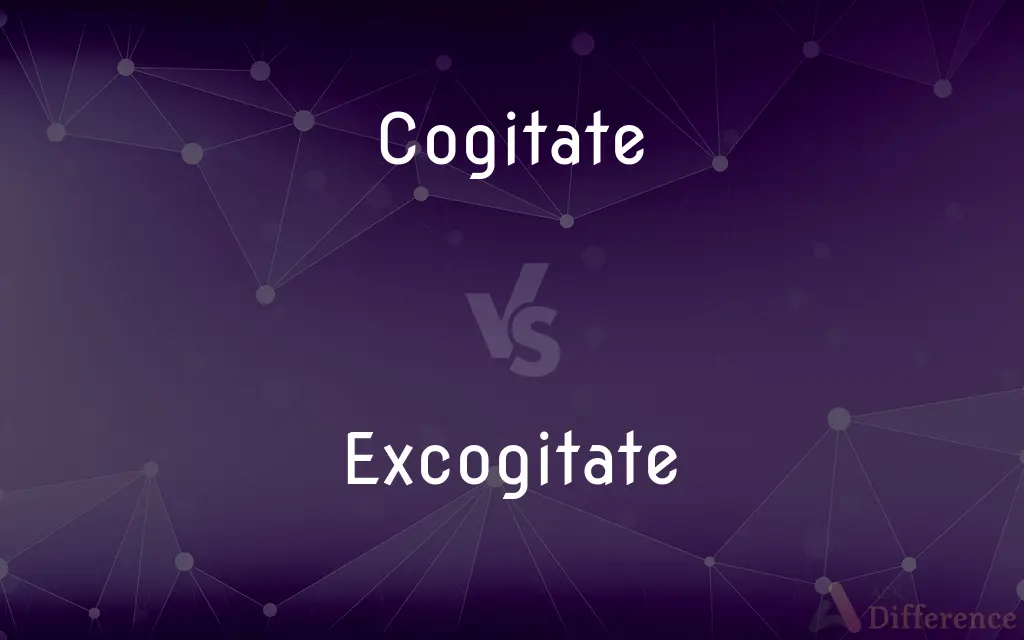Cogitate vs. Excogitate — What's the Difference?

Difference Between Cogitate and Excogitate
ADVERTISEMENT
Compare with Definitions
Cogitate
To take careful thought or think carefully about; ponder.
Excogitate
To consider or think (something) out carefully and thoroughly.
Cogitate
(intransitive) To meditate, to ponder, to think deeply.
Excogitate
To think over something carefully; to consider fully; cogitate.
Cogitate
(transitive) To consider, to devise.
ADVERTISEMENT
Excogitate
To reach as a conclusion through reason or careful thought.
After many years of study, he excogitated a solution.
Cogitate
To engage in continuous thought; to think.
He that calleth a thing into his mind, whether by impression or recordation, cogitateth and considereth, and he that employeth the faculty of his fancy also cogitateth.
Excogitate
To think out; to find out or discover by thinking; to devise; to contrive.
This evidence . . . thus excogitated out of the general theory.
Cogitate
To think over; to plan.
He . . . is our witness, how we both day and night, revolving in our minds, did cogitate nothing more than how to satisfy the parts of a good pastor.
Excogitate
To cogitate.
Cogitate
Consider carefully and deeply; reflect upon; turn over in one's mind
Excogitate
Come up with (an idea, plan, explanation, theory, or priciple) after a mental effort;
Excogitate a way to measure the speed of light
Cogitate
Use or exercise the mind or one's power of reason in order to make inferences, decisions, or arrive at a solution or judgments;
I've been thinking all day and getting nowhere
Excogitate
Reflect deeply on a subject;
I mulled over the events of the afternoon
Philosophers have speculated on the question of God for thousands of years
The scientist must stop to observe and start to excogitate
Share Your Discovery

Previous Comparison
Sward vs. Lawn
Next Comparison
Griffin vs. Manticore













































